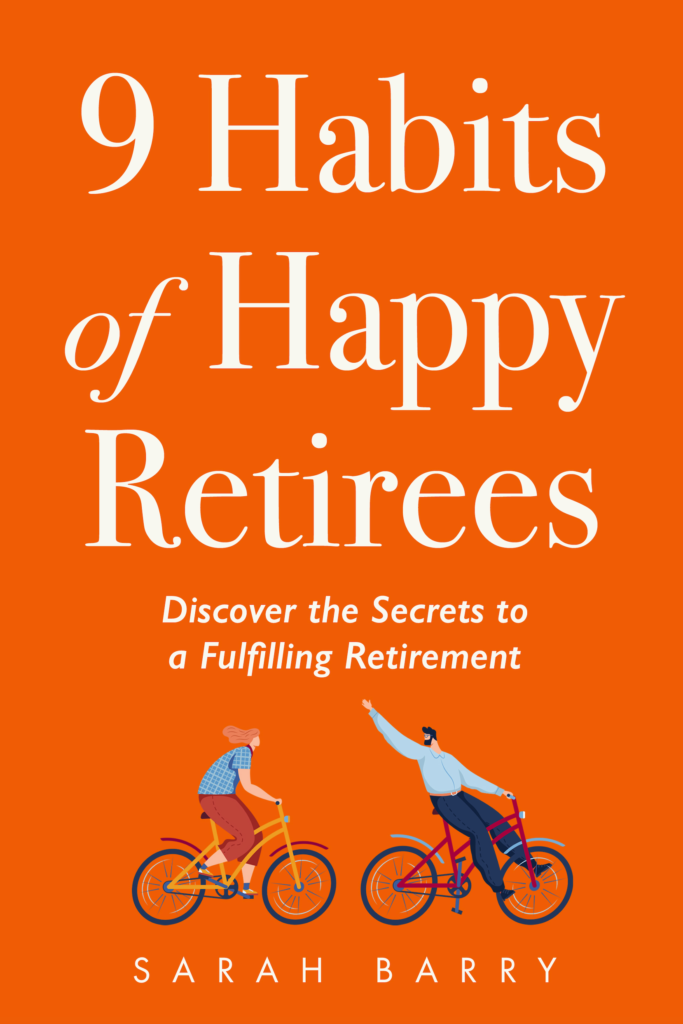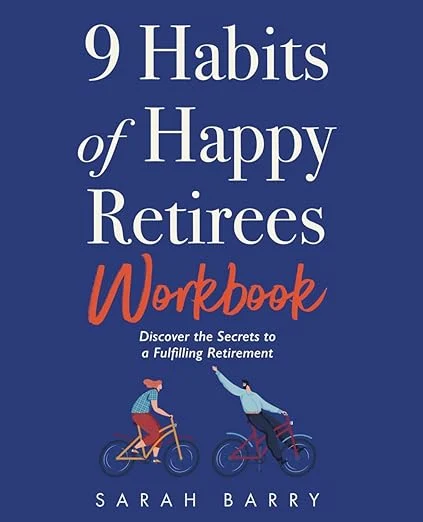Retirement Isn’t the End of Your Story
Rewriting the story of what life can be after work.
A New Chapter, Not the Final Page
For decades, retirement was sold as a destination. The finish line. A place where the active part of your life came to a halt and you coasted, quietly, into the background. But here’s the truth I’ve come to know, both personally and professionally:
Retirement is not the end of your story. It’s the beginning of a chapter that’s finally yours to write.
Whether you’ve just stepped out of your career or are a few years away, this transition is a powerful one. And like all powerful transitions, it brings questions—some exhilarating, others confronting.
What now?
Who am I without my work?
What does a meaningful life look like for me—now that I’m no longer defined by a title, a schedule, or a salary?
These are the right questions to ask. Because this chapter—while quieter in some ways—can be the most expansive, creative, and liberating one yet.
Retiring the Old Retirement Story
For years, the prevailing story around retirement was linear:
Work hard. Save up. Stop working. Relax.
And while rest is essential—especially if your working years were full-on—most people discover that perpetual leisure quickly loses its meaning. A few months of late mornings, long lunches, and open calendars can feel like freedom at first. But without purpose, freedom turns into floating.
Today’s retirees are rewriting that narrative. Retirement is no longer the end of contribution or growth—it’s simply the end of working in a certain way. It’s the start of choosing what to do with your time, talents, and energy.
You might choose to:
- Start a small business around something you love
- Volunteer where your heart is needed
- Explore creative passions that were long on hold
- Travel, not just to escape—but to connect and learn
- Deepen family bonds and build new friendships
- Simply live in alignment with your values, with no one else’s deadlines
In other words, retirement is becoming an evolution, not an exit. You’re not stepping down—you’re stepping in.
The Emotional Terrain of Retirement
Still, let’s not pretend the transition is purely exciting. It can stir up complex emotions.
Many people experience an unexpected sense of loss. Not just of a role, but of identity, structure, and a clear sense of worth. You may grieve things like:
- Daily interaction with colleagues
- A sense of usefulness or being needed
- The rhythm and routine of your day
- The clarity of goals and deadlines
These feelings are not only common—they’re normal. Retirement is a threshold moment. And like all life thresholds—graduations, empty nests, relocations, bereavement—it comes with a letting go.
But here’s what I’ve seen time and again: on the other side of that letting go is a becoming.
A new version of yourself is waiting. One not defined by a job description, but by desire. By curiosity. By joy. You just have to give yourself time to meet them.
A Real-Life Story: Tom’s Second Act
Tom, a former client, retired from engineering at 67. For months, he felt like he was drifting. The novelty wore off quickly, and the spaciousness started to feel like emptiness. “I didn’t miss the job,” he told me. “I missed being useful.”
With a little encouragement, Tom signed up for a local woodworking class. It had been decades since he’d worked with his hands in that way. Within a few weeks, he was showing up early, helping others with their projects, and rediscovering the quiet pride of making something tangible.
“I’m still building things,” Tom smiled. “Just not the way I used to. And I think I’m happier now than I ever was at work.”
What I love about Tom’s story is that it’s not flashy. It’s not about reinvention with a capital R. It’s about reconnection—to joy, skill, and community.
Three Mindset Shifts to Support Your Next Chapter
These three simple reframes can help you shift from a mindset of loss to one of possibility:
- “I’ve finished working” → “I’m starting living”
Retirement isn’t about retreating from life. It’s about stepping toward the parts of life that bring meaning, energy, and delight.
- “I’m no longer needed” → “I’m needed in different ways”
You may not be reporting to a boss anymore, but you still have incredible value. Whether it’s sharing your wisdom, mentoring, supporting your family, or showing up fully in your friendships, your presence matters deeply.
- “It’s too late” → “It’s the perfect time”
So many dreams were shelved because “life got in the way.” Retirement is an invitation to take them down, dust them off, and see what still fits. It’s not too late—it’s your time.
Creating a Life That Reflects Who You Are Now
Your retirement does not need to look like anyone else’s. In fact, it shouldn’t.
This is your chance to live a life built on your own values—not productivity, not external achievement, but internal alignment.
Consider these questions:
- What makes me feel alive now?
- Who do I want to spend my time with?
- What am I curious about?
- What kind of difference do I want to make?
- How do I want my days to feel?
Let these questions be your compass. You don’t need all the answers right away—but naming what matters helps you shape a life that feels meaningful.
Try This: Write the Next Chapter
Grab a notebook or journal. Take ten quiet minutes. Reflect on these prompts:
- The story I once believed about retirement was…
- The story I want to believe now is…
- The chapter I want to write next includes…
Let the words flow without judgment. You may be surprised at what emerges.
What the Research Tells Us
We now know that living longer also means we need to live more intentionally. According to research from the Stanford Center on Longevity, today’s retirees may spend 20–30 years in retirement—a full third of their adult lives.
But more time doesn’t automatically mean more satisfaction. The retirees who report the greatest life satisfaction are those who engage in purposeful activity, keep growing, and stay socially connected.
You don’t need a big reinvention. But you do need a reason to get up in the morning. A rhythm to your days. A sense that you’re still becoming.
The Story Continues
You are not starting over. You’re continuing forward—with more freedom, more wisdom, and more opportunity to choose how you live.
You’re the same author—but the plot has changed. The tone may be softer. The pace, more intentional. The setting, more grounded. But the story? The story is still being written.
This is not the end.
This is the moment you get to turn the page.
So go ahead—write something beautiful.
Ready to keep building a meaningful life after retirement?
Explore my books 9 Habits of Happy Retirees and the companion workbook—available now on Amazon. They’re filled with practical insights and exercises to help you shape a retirement that truly fits you.

Retirement Re-defined
“9 Habits of Happy Retirees” is your guidebook to crafting a retirement lifestyle that goes beyond financial security, focusing on the habits that lead to true happiness and contentment in your golden years.

The Essential Workbook
This workbook is designed to complement the book’s theoretical foundation, it offers a hands-on approach to improving your mental, emotional, and social well-being in retirement.

